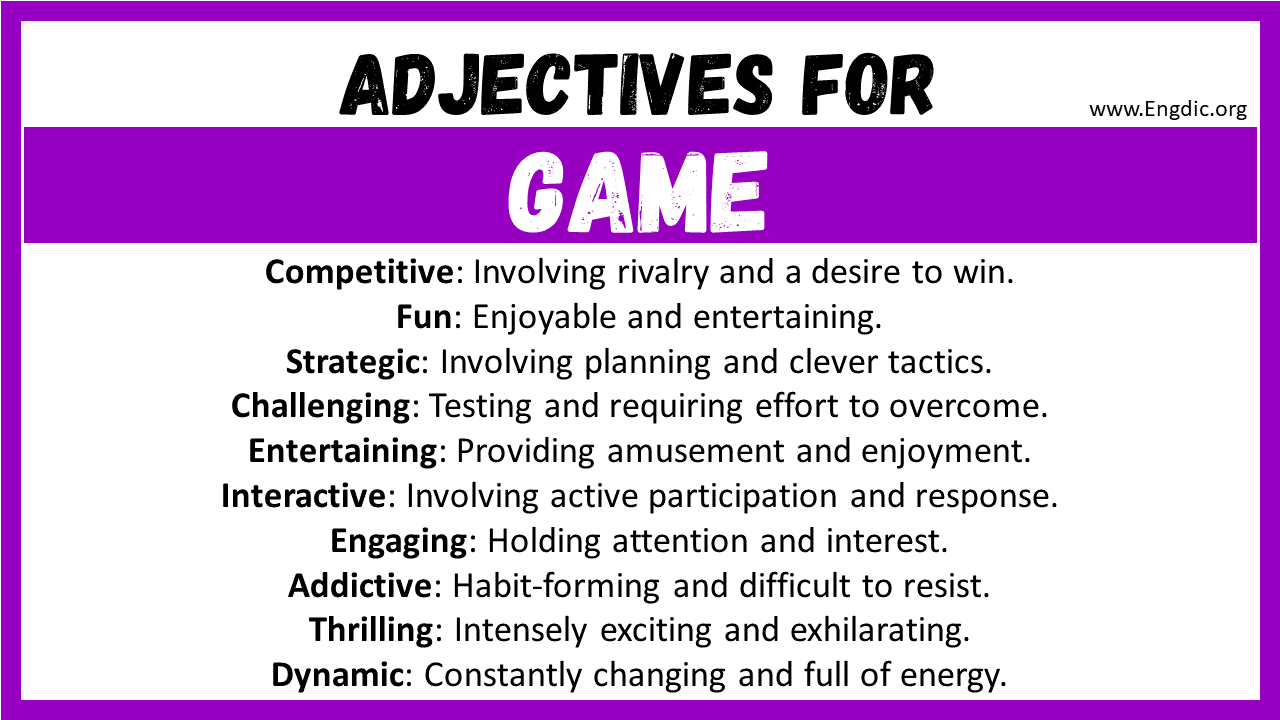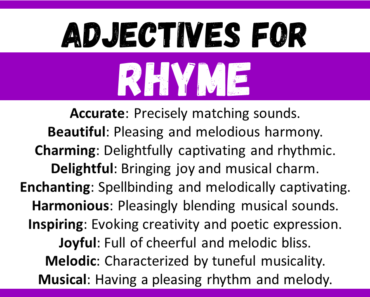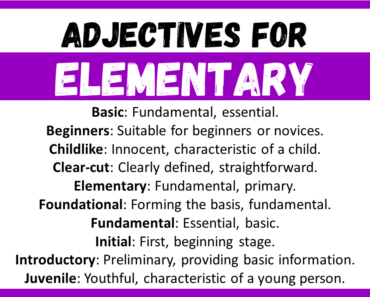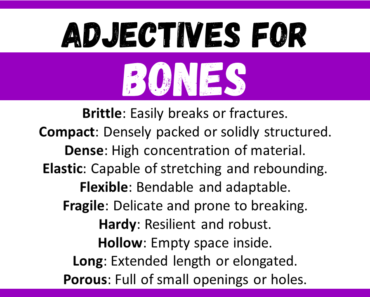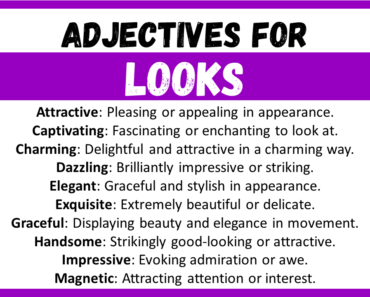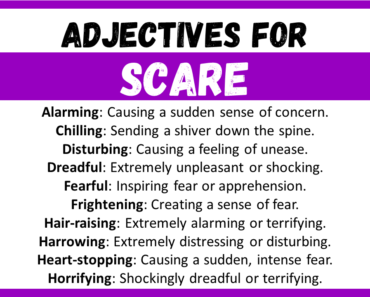Game: A form of entertainment where players engage in structured activities, often involving competition, strategy, or skill. Games have long been a source of joy and amusement for people of all ages. But what about the words we use to describe games? From exhilarating and immersive to challenging and addictive, the vocabulary we employ shapes our experience and understanding of these interactive experiences. In this blog post, we delve into the fascinating world of words that capture the essence of games, exploring their nuances and impact on our gaming adventures.
Adjectives for Game
Here are the 20 Most Popular adjectives for the game:
- Competitive
- Fun
- Strategic
- Challenging
- Entertaining
- Interactive
- Engaging
- Addictive
- Thrilling
- Dynamic
- Cooperative
- Versatile
- Exciting
- Immersive
- Intellectual
- Fast-paced
- Mind-bending
- Innovative
- Multiplayer
- Thought-provoking
Adjectives for “Game of Thrones”:
- Epic
- Intriguing
- Intense
- Gripping
- Dramatic
- Complex
- Brutal
- Enthralling
- Unpredictable
- Immersive
Adjectives for “Game Changing”:
- Revolutionary
- Transformative
- Groundbreaking
- Innovative
- Pioneering
- Disruptive
- Radical
- Trailblazing
- Breakthrough
- Cutting-edge
Adjectives for “Game for Students”:
- Educational
- Engaging
- Interactive
- Informative
- Collaborative
- Stimulating
- Challenging
- Adaptive
- Entertaining
- Enriching
Words to Describe a Game with Meanings
- Competitive: Involving rivalry and a desire to win.
- Fun: Enjoyable and entertaining.
- Strategic: Involving planning and clever tactics.
- Challenging: Testing and requiring effort to overcome.
- Entertaining: Providing amusement and enjoyment.
- Interactive: Involving active participation and response.
- Engaging: Holding attention and interest.
- Addictive: Habit-forming and difficult to resist.
- Thrilling: Intensely exciting and exhilarating.
- Dynamic: Constantly changing and full of energy.
- Cooperative: Involving collaboration and teamwork.
- Versatile: Flexible and adaptable in different situations.
- Exciting: Generating a sense of anticipation and enthusiasm.
- Immersive: Fully absorbing and engrossing experience.
- Intellectual: Stimulating mental activity and thinking.
- Fast-paced: Happening quickly and requiring swift reactions.
- Mind-bending: Extremely challenging and mind-expanding.
- Innovative: Introducing new ideas and approaches.
- Multiplayer: Involving multiple players or participants.
- Thought-provoking: Stimulating deep thinking and reflection.
Example Sentences for Game Adjectives
- The competitive race ended in a tie.
- We had so much fun playing board games.
- He devised a strategic plan to win the game.
- The puzzle was challenging but rewarding to solve.
- The magician’s tricks were highly entertaining.
- The video game offers interactive gameplay with friends.
- The book’s plot was engaging from beginning to end.
- The mobile game is highly addictive and hard to put down.
- The roller coaster ride was absolutely thrilling.
- The dance floor was filled with dynamic energy.
- They worked together in a cooperative effort to solve the puzzle.
- The smartphone is a versatile device for gaming and productivity.
- The concert was an exciting experience that we won’t forget.
- The virtual reality game provided an immersive adventure.
- The debate club promotes intellectual discussions among students.
- The car race was fast-paced and full of excitement.
- Solving the Rubik’s Cube is a mind-bending challenge.
- The tech company introduced an innovative gaming console.
- We enjoyed the multiplayer mode of the online game.
- The thought-provoking novel left a lasting impression.
Explore More Words:
Words to Describe a Personality
FAQ’s
How to describe a game in writing?
When describing a game in writing, focus on aspects such as the gameplay mechanics, objectives, player interactions, and the overall experience it offers to provide a clear and engaging portrayal of the game’s features and qualities.
What are some effective ways to describe a game in writing?
Effective ways to describe a game in writing include highlighting its unique features, capturing the emotions and experiences it evokes, using descriptive language to paint a vivid picture of the gameplay, and providing comparisons or references to other well-known games to give readers a point of reference.
